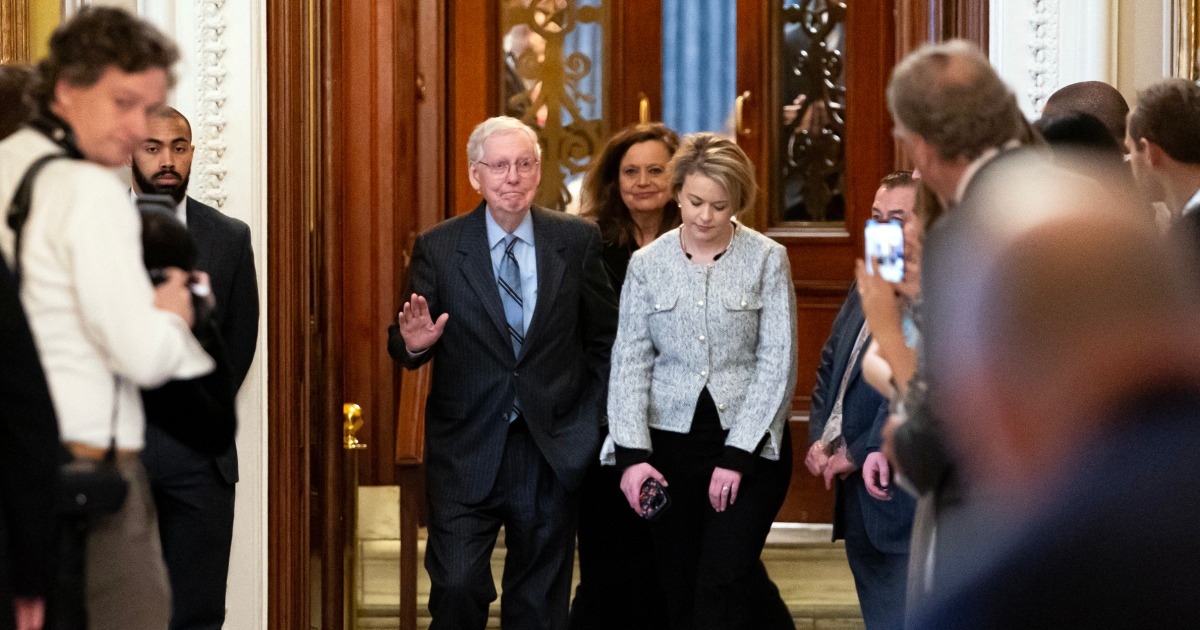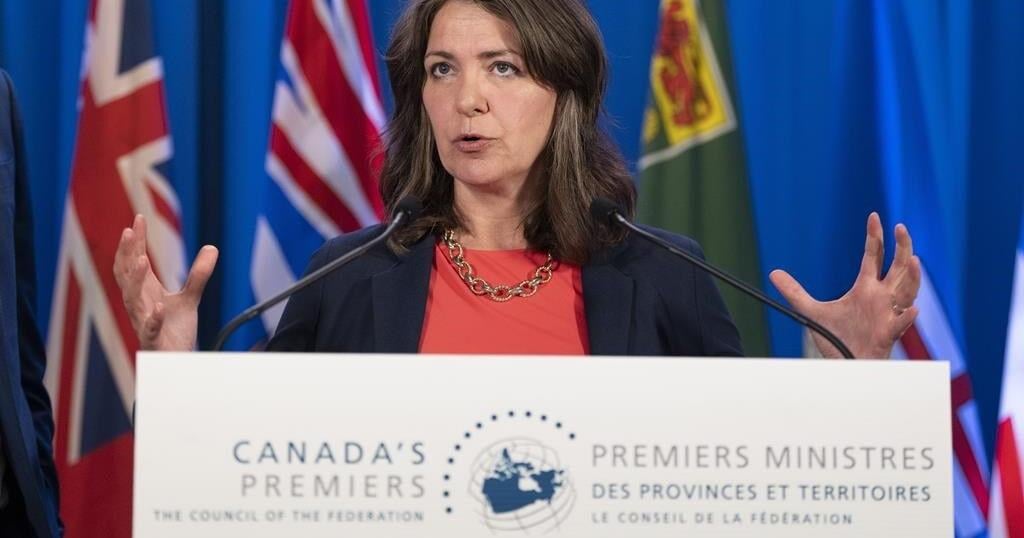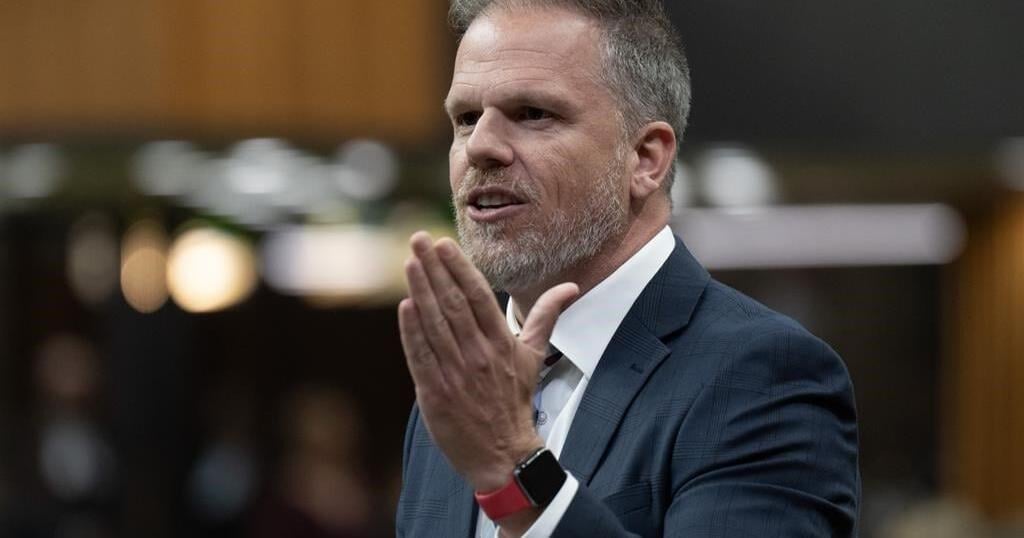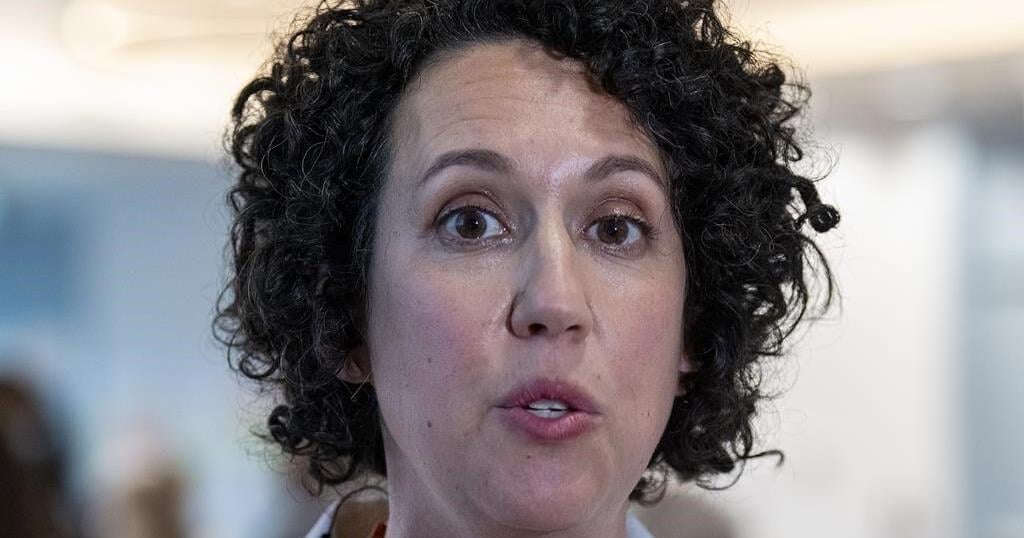EDMONTON – Alberta Premier Danielle Smith says her government’s $8.6-billion plan to fast-track building new schools will include a pilot project to incentivize private ones.
Smith said the ultimate goal is to create thousands of new spaces for an exploding number of new students at a reduced cost to taxpayers.
“We want to put all of the different school options on the same level playing field,” Smith told a news conference in Calgary Wednesday.
Smith did not offer details about how much private school construction costs might be incentivized, but said she wants to see what independent schools might pitch.
“We’re putting it out there as a pilot to see if there is any interest in partnering on the same basis that we’ll be building the other schools with the different (public) school boards,” she said.
Smith made the announcement a day after she announced the multibillion-dollar school build to address soaring numbers of new students.
By quadrupling the current school construction budget to $8.6 billion, the province aims to offer up 30 new schools each year, adding 50,000 new student spaces within three years.
The government also wants to build or expand five charter school buildings per year, starting in next year’s budget, adding 12,500 spaces within four years.
Currently, non-profit independent schools can get some grants worth about 70 per cent of what students in public schools receive per student from the province.
However, those grants don’t cover major construction costs.
John Jagersma, executive director of the Association of Independent Schools and Colleges of Alberta, said he’s interested in having conversations with the government about incentives.
He said the province has never directly funded major capital costs for their facilities before, and said he doesn’t think the association has ever asked for full capital funding.
He said community or religious groups traditionally cover those costs, but they can help take the pressure off the public or separate systems.
“We think we can do our part,” Jagersma said.
Dennis MacNeil, head of the Public School Boards Association of Alberta, said they welcome the new funding, but said money for private school builds would set a precedent that could ultimately hurt the public system.
“We believe that the first school in any community should be a public school, because only public schools accept all kids that come through their doors and provide programming for them,” he said.
Jason Schilling, president of the Alberta Teachers’ Association, said if public dollars are going to be spent on building private schools, then students in the public system should be able to equitably access those schools.
“No other province spends as much money on private schools as Alberta does, and it’s at the detriment of public schools, where over 90 per cent of students go to school,” he said.
Schilling also said the province needs about 5,000 teachers now, but the government announcement didn’t offer a plan to train and hire thousands more over the next few years.
Alberta NDP Leader Naheed Nenshi on Tuesday praised the $8.6 billion as a “generational investment” in education, but said private schools have different mandates and the result could be schools not being built where they are needed most.
“Using that money to build public schools is more efficient, it’s smarter, it’s faster, and it will serve students better,” Nenshi said.
Education Minister Demetrios Nicolaides’ office declined to answer specific questions about the pilot project Wednesday, saying it’s still under development.
“Options and considerations for making capital more affordable for independent schools are being explored,” a spokesperson said. “Further information on this program will be forthcoming in the near future.”
This report by The Canadian Press was first published Sept. 18, 2024.



































